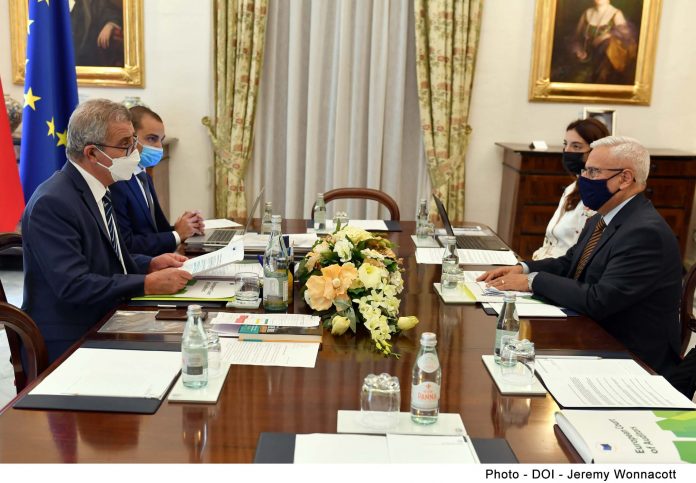
Minister for Foreign and European Affairs Evarist Bartolo welcomed member of the European Court of Auditors, Leo Brincat, who presented him with a report on Frontex, an agency set up 17 years ago to protect the European Union’s external borders.
In reaction to the report, Minister Bartolo said that this should be seen in the broad context of the European Union’s work on irregular immigration.
Expressing concern at the report’s conclusions, the minister said that Malta augurs that this will serve to improve the operation of Frontex, and for this agency to help EU member states meet the difficult challenge posed by irregular migration.
He said Frontex needs to be more effective in protecting the borders of the European Union, particularly the southern border which is fully exposed and dependent on the Libyan Coast Guard.
He reiterated that countries such as Malta are left facing a difficult situation because apart from the fact that Frontex does not sufficiently protect the EU’s borders, the other member states do not take on their share of irregular migrants arriving in border countries. In fact, since 2005, EU countries have received less than 10% of those arriving in Malta.
In this regard, the minister referred to the UNHCR report indicating that as of June 10, 2021, the Libyan Coast Guard had rescued 10,400 people who were smuggled out of the Libyan coast this year.
In reaction to the President of the European Parliament’s proposal that the EU itself should start conducting rescue operations in the territorial waters of member states, Minister Bartolo said that the problem is not the rescue operation in itself, but in which ports the rescued people are disembarked. In the absence of fair distribution, the problem will only grow for border countries like Malta.
Minister Bartolo said that there is also a need to give strong support to the Libyan authorities in guarding their own borders with the rest of Africa, so that Libya is no longer used by human traffickers as a country of transit towards Europe.
This along with the need for increased cooperation between EU member states so that irregular migrants who do not qualify for asylum are sent back to their country of origin.
The minister concluded that the European Union needs to work with African countries for the creation of wealth and jobs so that those who are leaving in search of a better life in Europe find a better future in their own country.









